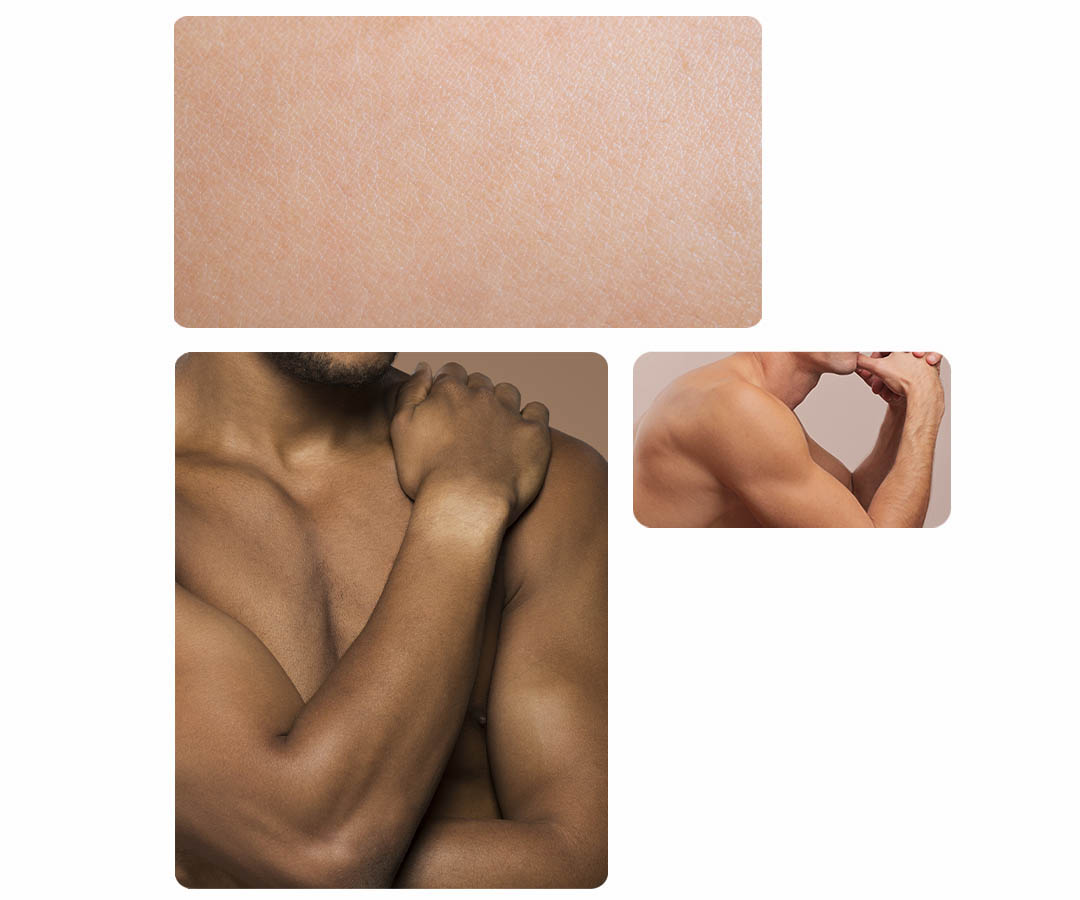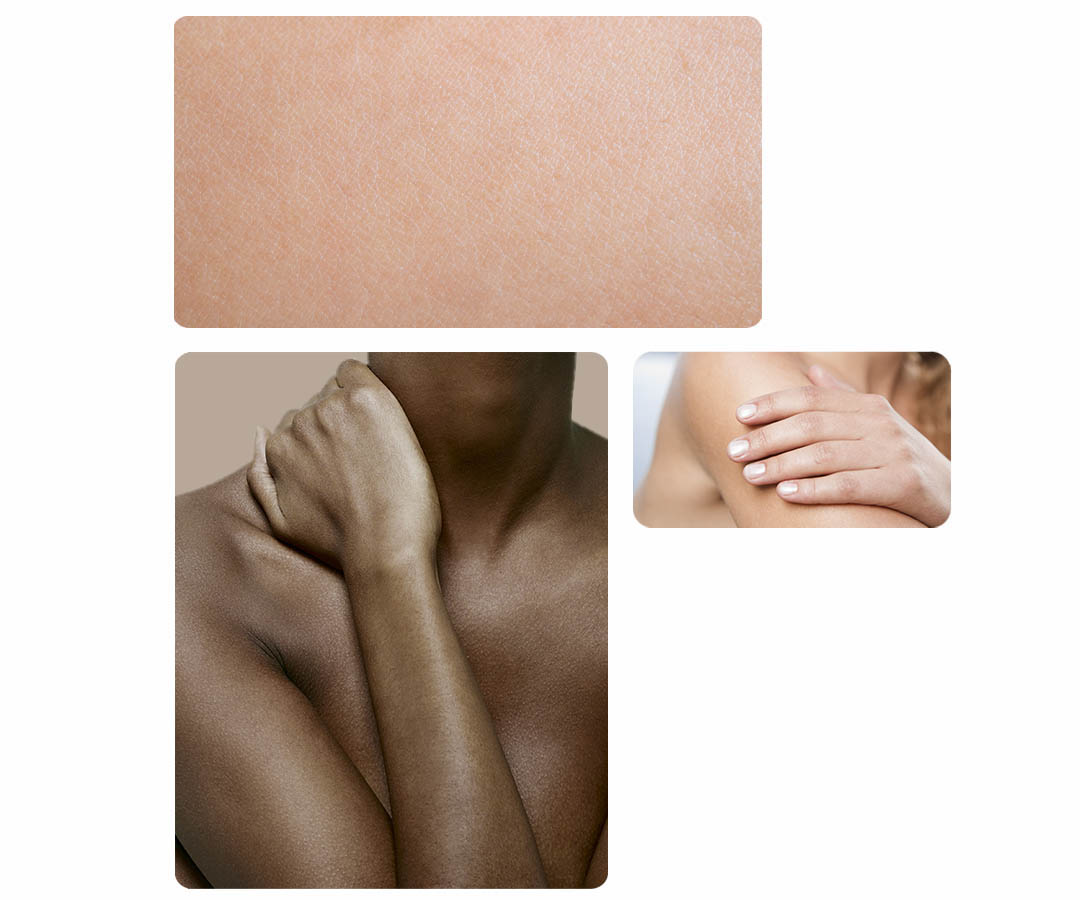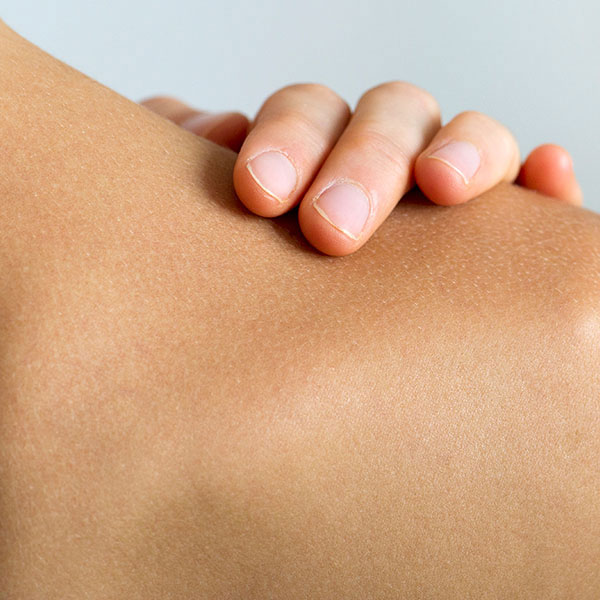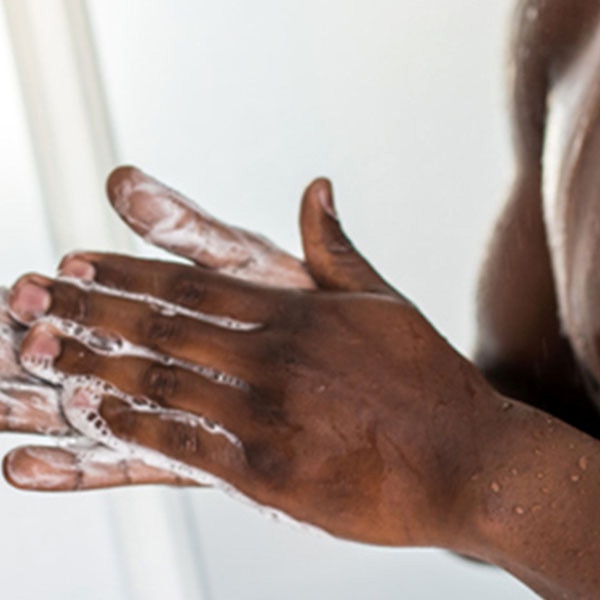SKIN TYPES
You have a sensitive skin
Sensitive skin reacts strongly to external factors and allergens, and these reactions can manifest in irritation, rashes and redness. With sensitive skin, the outer layer tends to have a weakened barrier function, so it can be damaged more easily.
There are many causes of sensitive skin: weather, diet, pollution, or stress can play a part, as can reactions to certain skincare and cosmetic products. Protect sensitive skin by choosing products that have been dermatologically tested and specially formulated for your skin type. Look for pH friendlly skincare products with fewer ingredients that are hypoallergenic, and free from dyes and fragrances.














